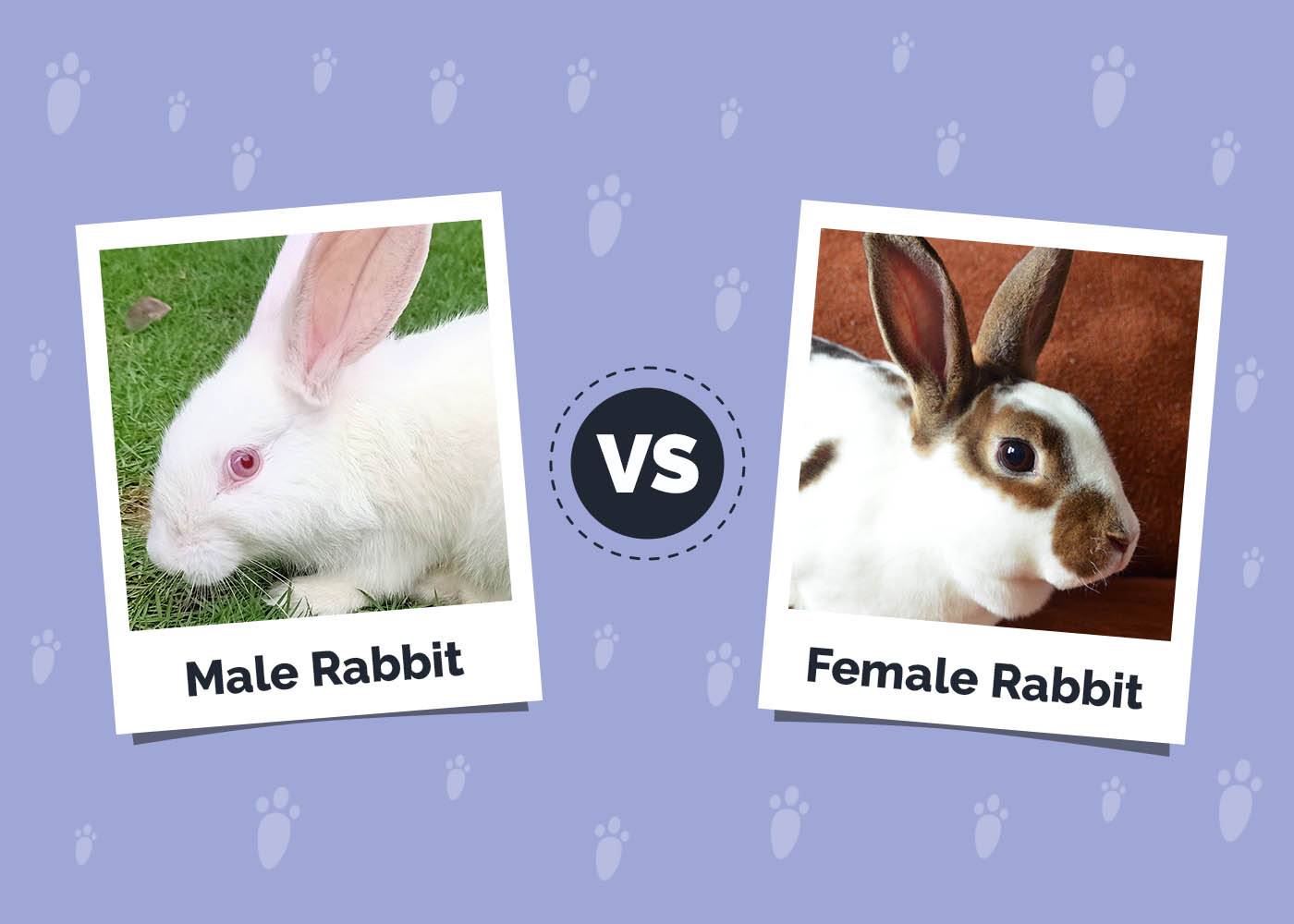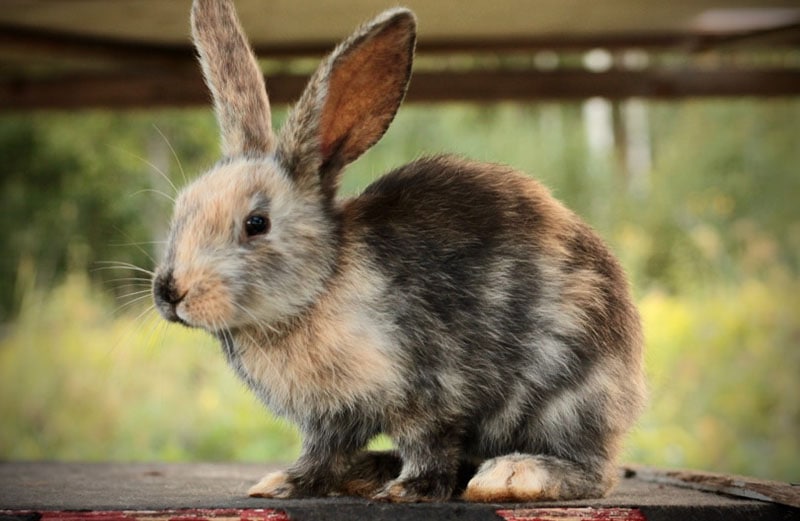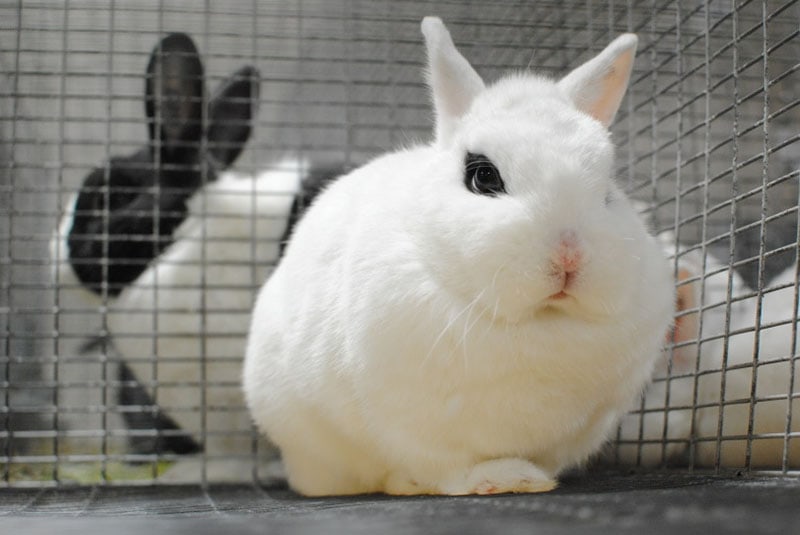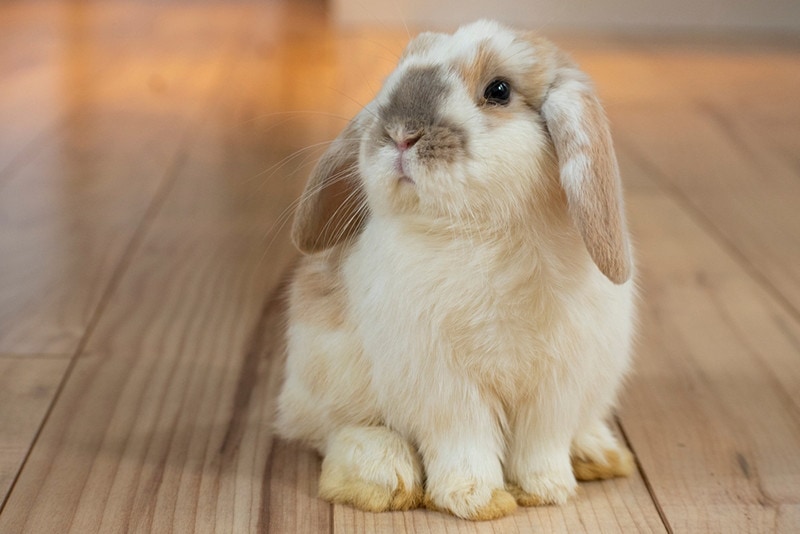Male vs Female Rabbit: Differences Explained (With Pictures)
Updated on

Click to Skip Ahead
Rabbits are a wonderful pet to introduce to your family as a pet. Children of all ages enjoy spending time and bonding with these small creatures. While all rabbits are adorable and fluffy, there are a few differences, other than the most obvious, between males and females that you should know before bringing a bunny home as your pet. Let’s take a look at the male vs female rabbit debate to help you better understand not only the visual but the behavioral and personality differences between the two. This will help you decide which bunny is right for you and your family.
Visual Differences

At a Glance
- Average height (adult): 8–20 inches
- Average weight (adult): 6–20 pounds
- Lifespan: 8–12 years
- Grooming Requirements: Moderate
- Average height (adult): Up to 16 inches
- Average weight (adult): 6–20 pounds
- Lifespan: 8–12 years
- Grooming Requirements: Moderate

Rabbit 101
You may not realize it but domestic rabbits come in over 50 breeds. Throughout these breeds, there are multiple sizes, personalities, and colors. You’ll even notice that certain breeds have characteristics specific to them that cannot be denied. When it comes to male and female rabbits, males are referred to as bucks and females as does. For baby bunnies, the correct term is kits or kittens.
Like with all pets, each rabbit is going to have its own personality. This is why discussing which sex is better is a bit difficult. The care a rabbit receives, things that have happened to them while they were growing, and even how they are feeling at the time can determine a rabbit’s personality. But, we’ll take a look at a few generalized characteristics of each sex to show you how they can differ and why one may be better for you than the other.
Male Rabbit Overview

Personality / Character
Male rabbits, or bucks, will usually be easier going, more laid back, and less aggressive toward people than females. They are inquisitive and like to explore their surroundings. Males can be determined by their oblong testicles that descend after they turn 12 weeks old. Male rabbits, the more curious of the two, are also quicker to not only interact with humans and other pets in the home, but to bond with the people they are interacting with. You will notice, however, if your male isn’t neutered they may display a bit of aggression, typically in the form of stomping and thumping, when another male rabbit is around.
Training
Litter training a rabbit isn’t all that difficult. However, you may notice that male rabbits require a bit more work and convincing than females. Don’t think this means males are an issue, however. They just aren’t as territorial as females.
Health & Care
When it comes to the health of male rabbits, the most important thing to do is to have them neutered. Unaltered males are known for spraying, humping, and a few other actions that aren’t preferred. However, after they are neutered, most of these behaviors go away. You’ll also notice that males aren’t as clean as females so you’ll be left cleaning up a bit more after these guys, but it’s nothing over the top.
Generally, if you ensure your rabbit is eating a proper diet and visiting the veterinarian when scheduled there shouldn’t be a lot of issues with health care. Simply follow your vet’s guidelines when it comes to food and dietary needs and your rabbit should live a long, happy life with you and the family.

Breeding
If you plan on breeding your male rabbit, neutering should wait. However, you must be prepared to deal with his actions when he is looking to mate. You’ll notice different sounds, spraying, and mounting more often when your male is ready to breed or a female is around.
- More outgoing and friendly
- Relaxes easier around people and other pets
- Forms bonds quickly
- Less aggressive
- Will spray, stomp, hump, or cause damage if not neutered
- Can be messier than females
Female Rabbit Overview

Personality / Character
While male rabbits are quick to venture out, females are more reserved. They are very cautious of their surroundings, and even of the people who own them. If given proper time to acclimate to their environment, they will begin opening up and claiming their space. While they aren’t quick to bond, when the time comes and it happens, they will bond hard with their people. They will show lots of love and affection. Keep in mind, female rabbits are very defensive and protective, especially if kits are involved. This is why they are often considered more aggressive than their male counterparts.
Training
You’ll notice that female rabbits are quicker to litter train than males. This is due to their cleanliness and territorial natures. This makes them prefer using the potty in one spot so once it’s shown to them, they are most likely going to return.
Health & Care
Just like with males, female rabbits are quite easy to care for. The most important things to remember are to keep things clean in their enclosure, feed them a proper diet, and make sure they are always offered fresh water. Take your female rabbit to the veterinarian when required to stay updated on their health and well-being.
If you aren’t planning on breeding your female rabbit, it’s best to have them spayed. Unfortunately, you’ll find that spaying costs more than neutering. False pregnancies happen often with rabbits and may cause them to build nests in hopes of having kits.

Breeding
As with your male rabbit, if you plan on breeding your female, avoid having them altered. However, female rabbits are more territorial and defensive. If you allow your female to birth kits, she will do what she needs to defend and keep them safe.
- Bonds formed are stronger
- Cleaner than males
- Show affection when bonded
- Easier to litter train than males
- Bonding takes longer
- Can show aggression more than males
- Very territorial
Which Gender Is Right For You?
When it comes to most rabbits, the differences between the genders aren’t very significant. Some believe male rabbits are better for first-time owners considering their easygoing nature and friendliness with people. However, if you can allow females the time needed to bond with you, that bond will be worth the effort. No matter which gender you choose, the most important thing is to provide your rabbit with proper love and care so they will share a long life with you.
Featured Image Credit: (L) erica joy manliquez, Shutterstock | (R) Kassia Marie Ott, Shutterstock












